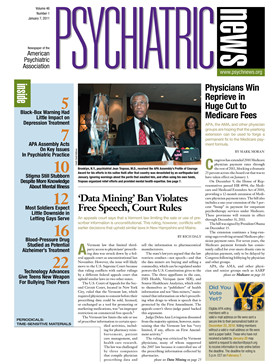The Department of Defense's “Report of the Comprehensive Review of the Issues Associated With a Repeal of ‘Don't Ask, Don't Tell’” was based on a survey soliciting the views of nearly 400,000 active-duty and Reserve service members and garnering 115,052 responses.
The department also solicited the views of more than 150,000 spouses of active-duty and Reserve military members, as well as those of service-academy superintendents and faculty, service chiefs of chaplains, service surgeons general, and current and former service members who are gay or lesbian.
The survey was conducted by Westat Research, which provides research services to U.S. government agencies, state and local governments, foundations, and businesses. The results revealed that 50 percent to 55 percent of service members thought that repeal of “Don't Ask, Don't Tell” (DADT) would have mixed or no effects, 15 percent to 20 percent said repeal would have a positive effect, and about 30 percent said it would have a negative effect. When spouses were asked about whether repeal of DADT would affect their preference for their service member's future plans to stay in the military, 74 percent said repeal would have no effect, while only 12 percent said “I would want my spouse to leave earlier.”
Negative views of repeal were greatest among troops engaged in combat. While the percentage of the overall U.S. military that predicts negative or very negative effects on their unit's ability to “work together to get the job done” is 30 percent, the percentage is 43 percent for the Marine Corps, 58 percent within Marine combat arms units, and 48 percent within Army combat arms units.
But the report emphasizes that these figures represent expectations about the effects of repeal that do not appear to reflect the experience of service members who have served under or with gay service members.
“[T]he percentage distinctions between warfighting units and the entire military are almost nonexistent when asked about the actual experience of serving in a unit with someone believed to be gay,” according to the report. “For example, when those in the overall military were asked about the experience of working with someone they believed to be gay or lesbian, 92 percent stated that their unit's ‘ability to work together’ was ‘very good,’ ‘good,’ or ‘neither good nor poor.’ Meanwhile, in response to the same question, the percentage was 89 percent for those in Army combat arms units and 84 percent for those in Marine combat arms units—all very high percentages.”
Anecdotal comments revealed that much of the concern among those with negative views of repeal had to do with perceived effects of openness regarding sexuality—especially the flaunting of homosexuality and promiscuity.
“Repeatedly, we heard service members express the view that ‘open’ homosexuality would lead to widespread and overt displays of effeminacy among men, homosexual promiscuity, harassment and unwelcome advances within units, invasions of personal privacy, and an overall erosion of standards of conduct, unit cohesion, and morality. Based on our review, however, we conclude that these concerns about gay and lesbian service members who are permitted to be ‘open’ about their sexual orientation are exaggerated and not consistent with the reported experiences of many service members.”
Comments solicited from gay service members appear to bolster that conclusion. “I think a lot of people think there is going to be this big ‘outing’ and people flaunting their gayness, but they forget that we're in the military,” one gay service member was quoted as saying. “That stuff isn't supposed to be done during duty hours regardless if you're gay or straight.”
